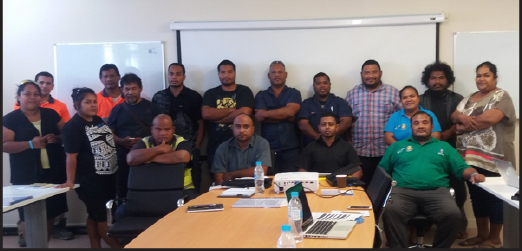Related News

The Institute of Applied Sciences (IAS) had delivered trainings in Nauru, Solomon Islands and Niue as part of a Stockholm Convention on Persistent Organic Pollutants (POPs) project. The training course was developed by IAS under a contract to the Secretariat of the Pacific Regional Environment Programme. Funding for the work was provided by the Global Environment Facility and implemented by the United Nations Environment Programme.
The training course was targeted at people who are directly involved with the storage, handling, use or disposal of chemicals, and especially those people who work in laboratories, or as science teachers, or whose work involves the supervision or management of laboratory facilities. It was also relevant to government officials with regulatory responsibilities in this area, including Customs Officers, who were given a more targeted half-day course.
The training course for Solomon Islands was delivered from 13 to 17 June 2016. The main venue for the course was Bethel Conference Centre located in Panatina Plaza, Honiara, and the course presenters were Shalveen Raj Assistant Project Manager, IAS and Luke Mani, a Chemistry Lecturer at the USP Solomon Islands Campus and a former Graduate student of IAS. Local assistance with planning and organisation was provided by Ministry of Environment, Climate Change, Disaster Management and Meteorology.
The training course for Niue was held from 1to 4August 2016. The main venue for the course was Niue Sports and Golf Club, Alofi, and the course presenter was Shalveen Raj. Local assistance with planning and organisation was provided by the Niue Department of Environment/Takatakaimotu Niue.
Shalveen was also the course presenter at the Nauru training from 18 to 21 October 2016. The Ministry of Environment Nauru had provided local assistance with planning and organisation. Participants of the trainingrelayed that the workshop was educational as it provided more information on the hazardous nature of chemicals and the proper handling of chemical wastes.